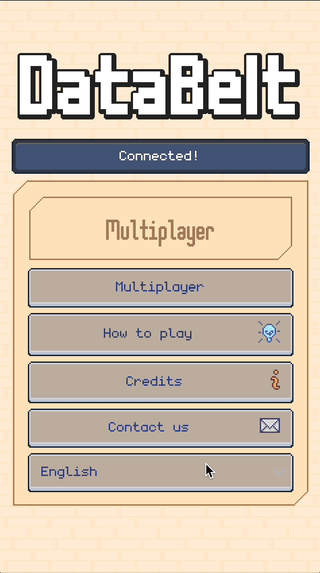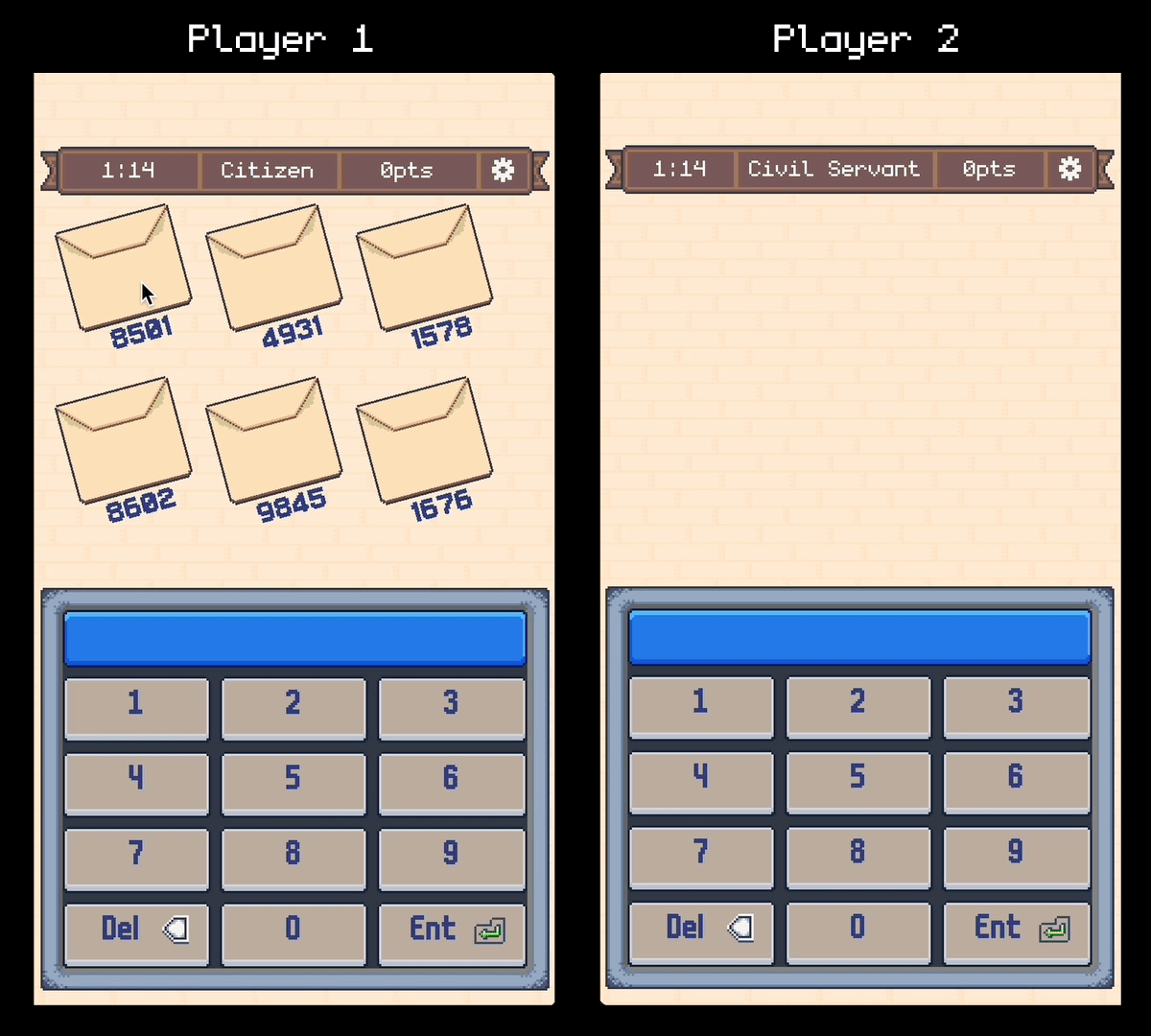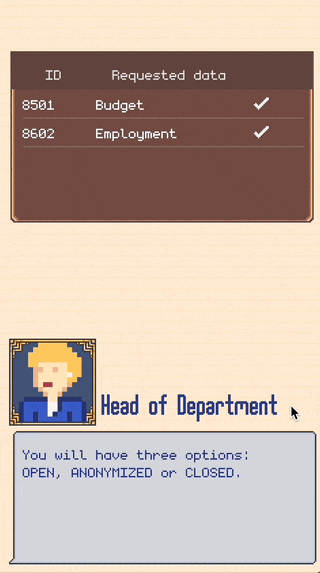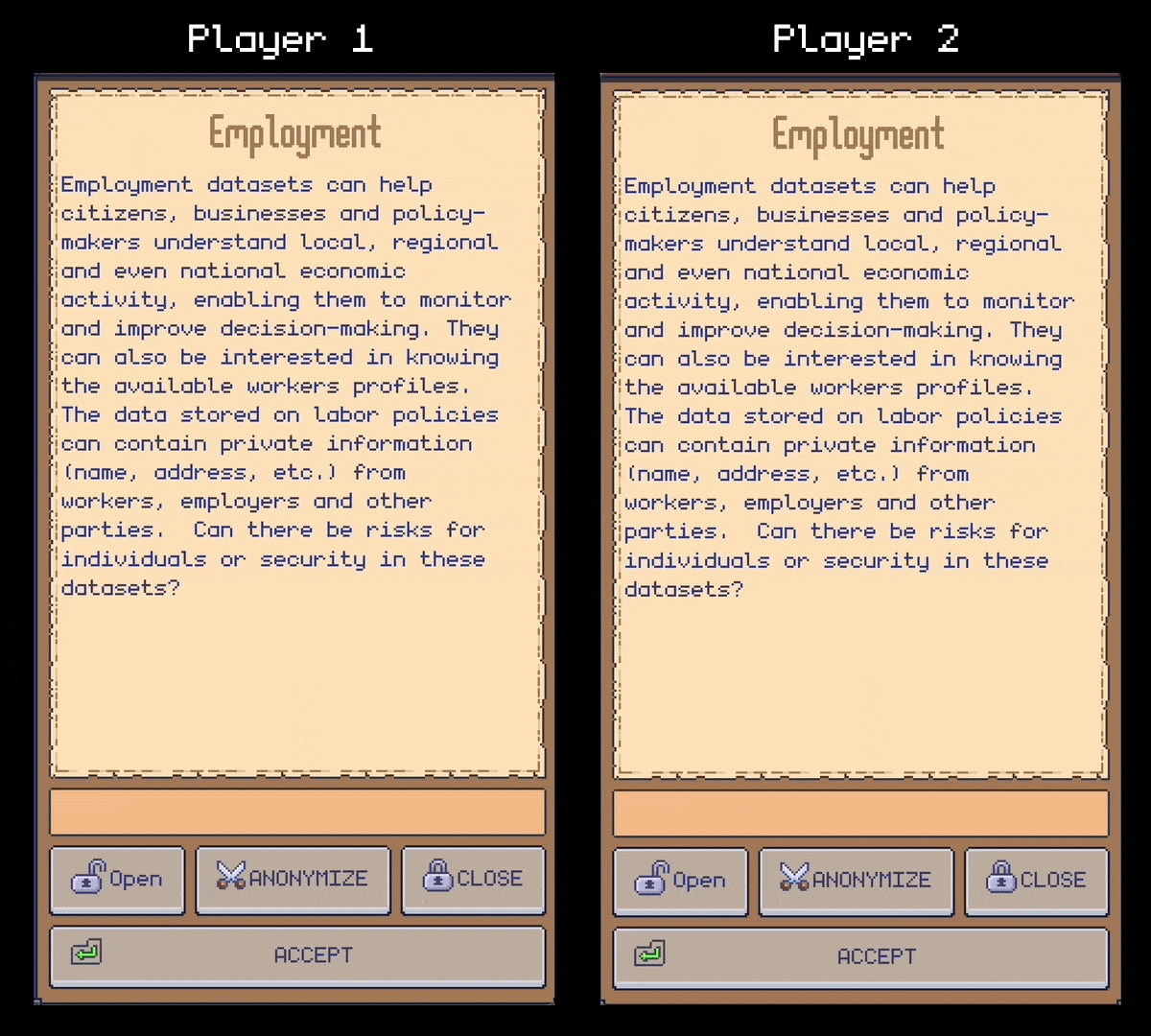Data Belt is a 2-4 player game for iOS and Android. The educational objective of the game is to encourage discussions between civil servants about the benefits and risks of opening governmental data.
The game is set in a municipal office that has to decide whether or not to open government data. Players are assigned the roles of civil servant, colleague, boss and citizen. Each of these roles have specific abilities which are needed by the team to complete their tasks, therefore inviting players to collaborate. During each round, players need to collaboratively complete office tasks, which generate governmental datasets. Datasets can be released to the public or kept closed.
For each dataset, players are shown a dataset description and are asked what to do with the dataset. The decision is synchronised across the three devices, meaning that any of the players can see the current pick and change it, if they want to. Through a synchronised checkbox, the players can suggest as a group to either open the dataset as is, anonymise it and then share it or keep it closed.
 (1) Main menu: note the support for localisation
(1) Main menu: note the support for localisation
 (2) Integrated survey to assess learning outcomes: survey items are retrieved and stored dynamically via Microsoft PlayFab.
(2) Integrated survey to assess learning outcomes: survey items are retrieved and stored dynamically via Microsoft PlayFab.
 (3) File processing: the game simulates the environment of a public office with an interface inspired by "Papers, Please". Players receive several files (the envelopes) which need to be processed. Each file has a 4 digit ID and a set of tasks to be completed by a specific player. Tasks include stamping the file or signing it. The file can only be on one player's screen at a given time. Players need to pass the files around to complete them. Players can fetch the envelopes by inputting its 4 digit ID into the keypad. For example, a player might say out loud “Civil Servant! Please fetch file 8501 and sign it 3 times!”. Players need to process as many files as possible within 2 minutes.
(3) File processing: the game simulates the environment of a public office with an interface inspired by "Papers, Please". Players receive several files (the envelopes) which need to be processed. Each file has a 4 digit ID and a set of tasks to be completed by a specific player. Tasks include stamping the file or signing it. The file can only be on one player's screen at a given time. Players need to pass the files around to complete them. Players can fetch the envelopes by inputting its 4 digit ID into the keypad. For example, a player might say out loud “Civil Servant! Please fetch file 8501 and sign it 3 times!”. Players need to process as many files as possible within 2 minutes.
 (4) Processing review: players have the opportunity to review how many files they managed to process within the given time
(4) Processing review: players have the opportunity to review how many files they managed to process within the given time
 (5) Voting: having processed all these files, the municipal office has generated some datasets, which can either be opened to the public, partially shared (anonymise), or kept private (close). The decision is collective, so the effect of the buttons is synchronised across all players' screens.
(5) Voting: having processed all these files, the municipal office has generated some datasets, which can either be opened to the public, partially shared (anonymise), or kept private (close). The decision is collective, so the effect of the buttons is synchronised across all players' screens.
 (6) Voting review: in this last stage, players can verify the outcome of their decisions can get assigned points and penalties, the game then continue with another round of file processing.
(6) Voting review: in this last stage, players can verify the outcome of their decisions can get assigned points and penalties, the game then continue with another round of file processing.





